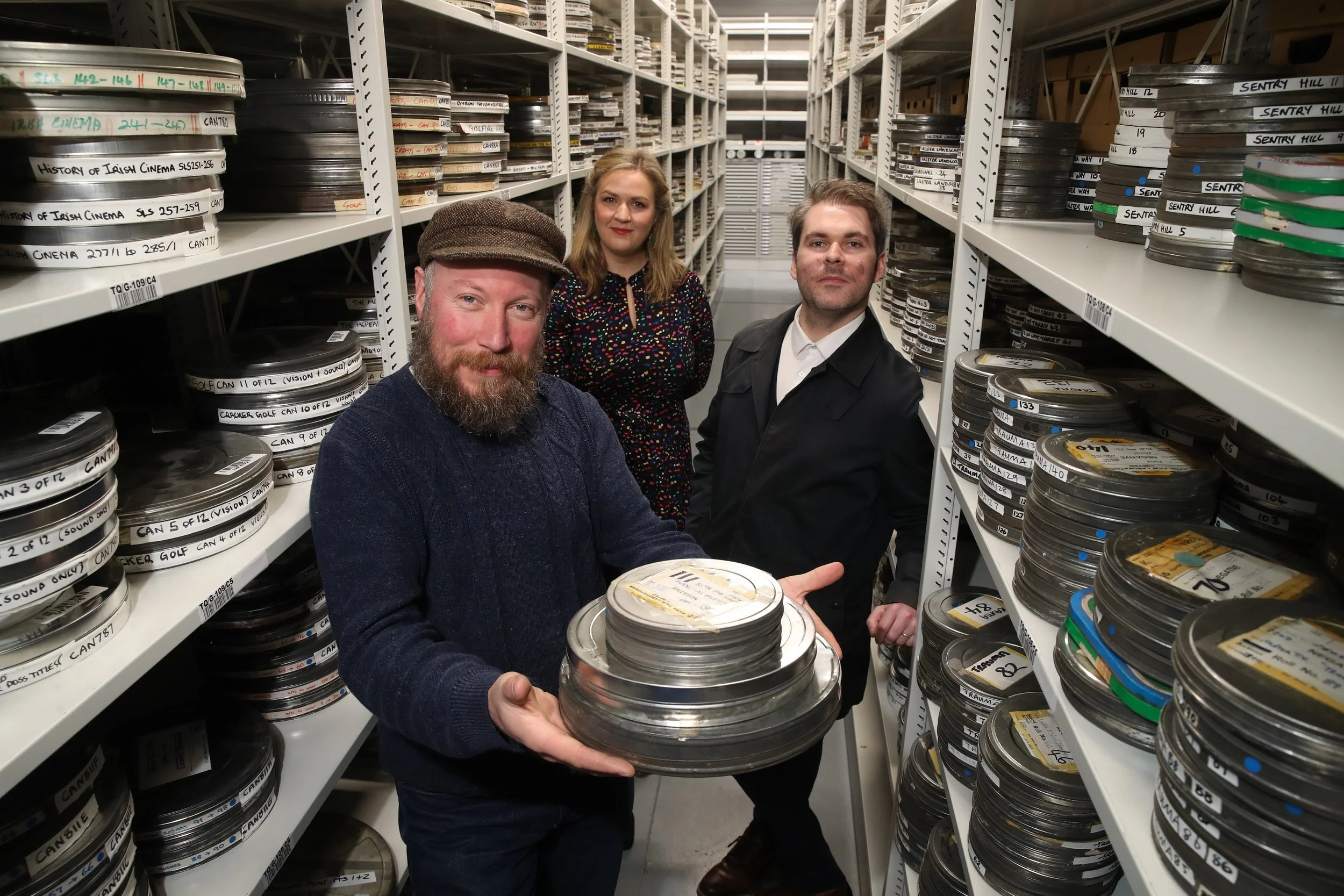(L-R) Singer/Songwriter, Matt McGinn; Classical and Electronic Artist, Rachel Boyd and Poet, Stephen Sexton
A unique record of archive film has been beautifully preserved for future generations and will now be showcased by an eclectic selection of artists in a series of projects collectively titled The Looking Glass Anthology.
This partnership project between Northern Ireland Screen’s Digital Film Archive and the Public Record Office of Northern Ireland (PRONI) is funded by the Broadcasting Authority of Ireland as part of an archiving scheme to preserve a record of Irish culture, heritage, and experiences.
The project invited artists to develop creative responses to 160 hours of UTV cine film, captured during its first decade of broadcasting from 1959 to 1969.
Footage found depicts lost traditions, moments of high political drama and the visits of cultural icons to Northern Ireland.
A selection of artists responded, and the four chosen projects are:
‘The Turning of the Tide’, a blend of song, orchestration and poetry by Hilltown singer/songwriter Matt McGinn using footage of a well-known Belfast character and performed with Arco Quartet and poet Natalya O’Flaherty.
A poem by Stephen Sexton, entitled ‘The Actualities’ that reflects on the people of Northern Ireland looking to the future. The poem has been set to music by Ian Livingstone.
The ‘Borders’ project, an audio/visual response to the archive utilising the track ‘Arrival’ by Elma Orkestra and Ryan Vail.
A traditional cinematic composition by Rachael Boyd entitled ‘Wanderers’, responding to archive footage of Itinerants in 1960s Ireland.
A website entitled DFA Slow TV has also been created to act as a 24-hour live stream of the digitised material. Themes include local traditions, folklore, crafts, and fashion.
Contribution funding from the Department of Communities supports the project and a programme of public engagement.
Richard Williams, Chief Executive of Northern Ireland Screen said:
“Northern Ireland Screen wanted to ensure that generations to come can value our lost traditions and continue to remember these moments from the most ordinary everyday occurrences, to lost traditions and times of political drama.”
“We have an array of amazing artists here that through this project have been given a platform to share their art and use it to bring this beautiful archive footage back to life in a number of new and imaginative ways.
“We were delighted to partner with the Public Record Office of Northern Ireland on this project, and thank the Broadcasting Authority of Ireland and the Department of Communities for funding this activity.”

